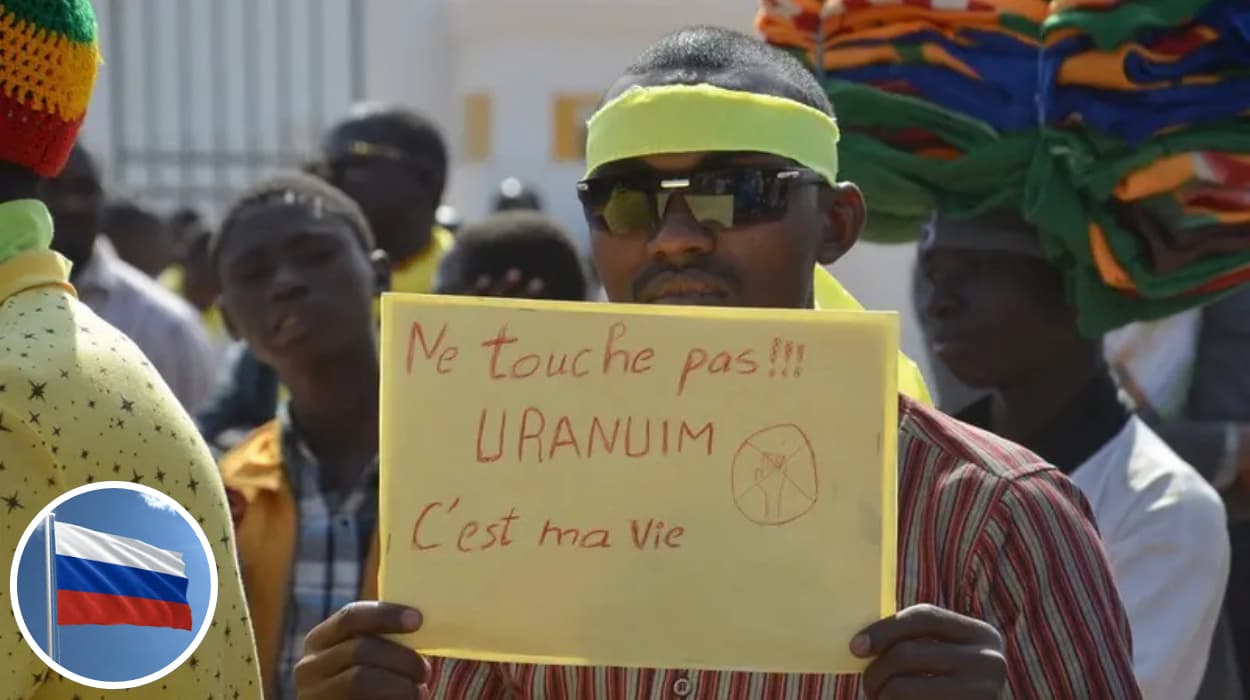Summary
- Russia is interested in mining uranium in Niger, a major global uranium producer.
- Niger’s Minister of Mines and Geology confirmed Russia’s plans for mining cooperation.
- Uranium is vital for Russia’s nuclear energy and defense industries.
- Niger’s abundant uranium reserves make it a strategic partner for energy-hungry nations.
- Russia’s involvement in Niger reflects its aim to expand influence in Africa.
- Niger is actively seeking investment from multiple foreign partners in its mining sector.
- Regional instability in the Sahel, including Niger, underscores the importance of stable partnerships.
This announcement marks a significant development in Russia-Niger relations, highlighting the growing competition among global powers for access to critical natural resources in Africa. As Niger positions itself as a key player in the uranium market, its engagement with Russia not only promises economic benefits but also carries important geopolitical implications amid ongoing regional challenges. The evolving partnership exemplifies Niger’s strategy to diversify its foreign collaborations while enhancing its mining sector’s resilience and global standing.
What Did Niger’s Minister Say About Russia’s Uranium Mining Plans?
As reported by various media sources, including statements from officials, Niger’s Minister of Mines and Geology revealed that Russia is keen to commence uranium mining operations in Niger. The minister stated during public discussions that Russia intends to collaborate closely with Niger to develop its uranium mining capabilities. This announcement sheds light on Russia’s strategy to secure raw materials vital for its nuclear energy and defense sectors.
The minister emphasized that Niger, as a leading uranium producer globally, holds significant deposits that attract international interest. Working with Russia on mining uranium signifies a step toward strengthening bilateral ties and broadening Niger’s mining partnerships beyond its traditional partners.
Why Is Russia Interested in Niger’s Uranium?
Russia's interest in Niger’s uranium resources is driven by several factors. Uranium is essential for Russia’s expansive nuclear power program and military applications. As global competition for critical minerals intensifies, securing stable uranium supplies supports Russia's energy independence and geopolitical ambitions.
With Niger ranking among the world’s top exporters of uranium, the country presents an attractive and strategic source. Analysts note that Russia aims to deepen its influence in Africa through such resource agreements, enhancing economic leverage and political ties in the continent.
How Does This Fit into Niger’s Broader Mining Strategy?
Niger has been actively courting diverse international partners to attract investment in its mining sector. The government aims to leverage its mineral wealth, including uranium, gold, and oil, to boost its economic development.
By diversifying partnerships to include Russia, Niger is positioning itself as an open and cooperative mining hub. This diversification is especially pertinent amid recent regional instability, where Niger seeks stable and reliable foreign investment sources for sector growth.
What Are the Geopolitical Implications of Russia’s Mining Interest?
The potential for Russia to establish a strong mining foothold in Niger carries geopolitical weight. It aligns with Russia’s broader African strategy, which includes military engagements, diplomatic overtures, and resource partnerships.
Observers caution that increased Russian involvement could alter regional power dynamics, especially amid Western countries' traditional engagements in Niger and the Sahel. It also highlights competition among global powers for access to Africa’s natural resources.
How Does Current Regional Instability Affect Mining Prospects?
Niger and the Sahel region have recently witnessed political turbulence and security challenges, which can impact mining operations and foreign investments. The government’s openness to Russia and other partners reflects a pragmatic approach to addressing these challenges by securing multiple allies.
Ensuring stable mining operations under these conditions will require robust security measures and effective governance to mitigate risks associated with insurgency and political instability.
What Are the Next Steps for Russia and Niger in This Cooperation?
While Niger’s Minister of Mines and Geology announced the interest, concrete details regarding timelines, investment amounts, or joint venture agreements remain to be disclosed. Further negotiations and formal agreements will likely follow to outline operational specifics.
The partnership could involve Russian state-owned or private companies experienced in uranium extraction and nuclear material handling. Both sides appear committed to advancing the dialogue to mutually benefit from the resource.
What Has Been the International Response?
Experts say that there has been limited public commentary from other international actors regarding Russia’s intentions in Niger’s uranium sector. However, given Niger’s importance in the global uranium market, various stakeholders including European and American entities, traditionally involved in Niger’s mining, will monitor developments closely. The move comes amid shifting alliances and competition for African resources, where cooperation with Russia may recalibrate existing relationships and economic balances.

